We’re wired to focus on authenticity…so what’s all this talk about artificiality?
The story goes that artificial intelligence can actually help brands reach consumers with more authentic, relevant and engaging messaging. That’s because AI speedily generates the valuable insights marketers need to do that, making AI-powered solutions a powerful competitive edge for brands.
So are machines the marketer’s new best friend? Many are cozying up to the benefits of adding AI to their content marketing strategies. Read on for more details, examples and future predictions:
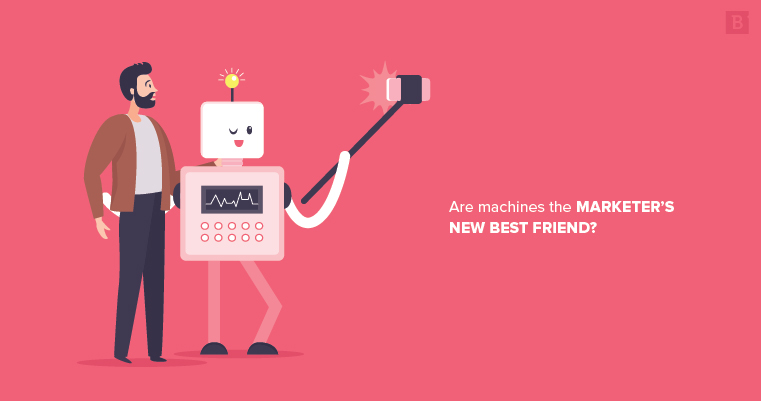
Current relationship status
Artificial intelligence makes machines smart. In marketing, it helps enhance every aspect of the customer journey and experience. Needless to say, AI and marketing aren’t quite married yet, but the relationship is developing at a relatively consistent speed.
At this point, AI marketing focuses primarily on analytics, publication and reporting. Some software can even help with content creation, but the general consensus is that a lot of pieces still require the human touch. However, insights from AI software help marketers plan and develop much more effective content.
AI is an all-encompassing term that describes various technologies, including machine learning, deep learning and natural language processing. With advanced algorithms, these AI-powered technologies can advance marketing efforts beyond human ability.
The key is for brands and marketers to use AI wisely. Some examples include:
Marketing automation
You’re probably already using AI-powered solutions to plan, promote, measure and analyze your marketing efforts. AI helps marketers check mundane and repetitive tasks off the list, including:
- Keyword research.
- Image search.
- Optimization.
- Content scheduling.
- Email marketing.
- Large-scale content management.
- Lead generation.
- Campaign measurement.
- Report generation.
This software helps marketers prioritize their important, higher-level thinking responsibilities while using the AI-powered insights to work more effectively.
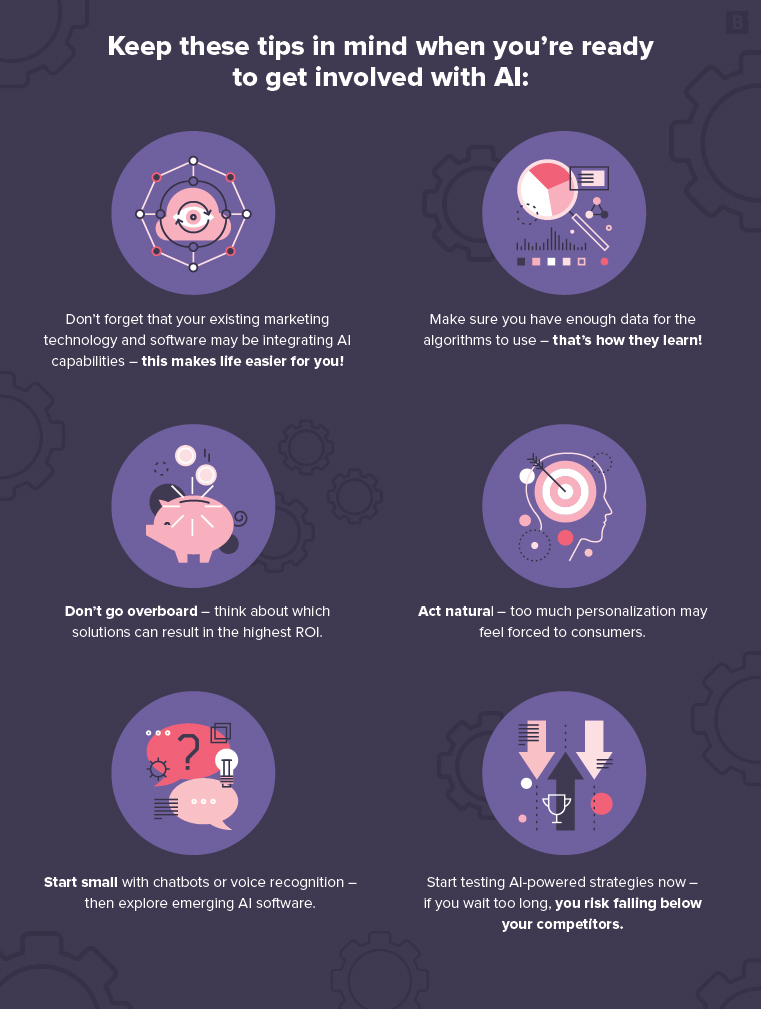
Infinite data analysis
When compared to the bots, our most significant drawback as humans is that our abilities are finite. Where it takes us hours to analyze consumer behavior patterns, AI can generate insights in seconds. With this infinite ability to collect, analyze and interpret data, AI software also never burns out or feels the need to take a vacation.
This data analysis is powered by machine learning, which is an aspect of AI designed to learn from data, identify patterns and provide predictions without significant human intervention.
Thus, instead of drowning in endless information, AI marketing allows marketers to come up for air and extract actionable insights from data at a much faster rate. That includes data from social monitoring, web analytics, sales results and campaign tracking. AI can even provide predictions and recommendations based on the data, enhancing your ability to create effective marketing strategies.
Insightful recommendations
Do you ever feel like Netflix, Spotify and Amazon are reading your mind? They’re not quite doing that (yet), but they are using recommendation engines to suggest the content and products users are bound to enjoy.
More than taking into account the last movie you watched, Netflix takes note of what you rewatch, pause and never finish, rewind, fast forward and so on. Watching all of these aspects of your behavior, plus comparing it with other users, is also how Spotify somehow knows your music taste so well.
Voice and image recognition
Voice recognition technology is the reason Siri and Alexa can understand us and how we can speak Google searches and text messages into our smartphones. It gets visual on social media, where image recognition allows Snapchat, Instagram and Facebook to add filters to our selfies and video chats.
Whether practical or entertaining, this technology is all about making technology as convenient and easy to use as possible.
Intelligent chatbots
These AI-powered messages are key to chatting up consumers through an interactive and engaging experience. Chatbots have become almost commonplace – which means your business may be a tad behind the curve if you don’t have one on the roster.
They use natural language processing technology to ensure your bot speaks in a conversational tone that feels natural to consumers. Plus, you can alter your bot to support your brand voice.
The simplest chatbots are the customer support pop-ups on landing pages, but you can be as creative with your bot as you wish. (More on integrating tacos and chatbots later.)
Website enhancement
With quick data analysis, AI can help marketers target website efforts based on audience demographics and personas, types of devices and online behaviors. That means viewers who visit your website or blog will see the content, notifications and offers that are most relevant to their demographics, location and browsing history.
These intelligent personalization formats and experiences can include targeted inline content, survey questions, push notifications, information bars, email campaigns and landing pages. No matter the package it comes in, the idea is to reach consumers with the right content and the right time.
Results from the 2018 Real-Time Personalization Survey conducted by Evergage highlighted the benefits of these personalized web experiences. Of the marketers surveyed, 55 percent saw increased visitor engagement and improved customer experience as the main benefits from personalization, while increased conversion rates was also a mega bonus.
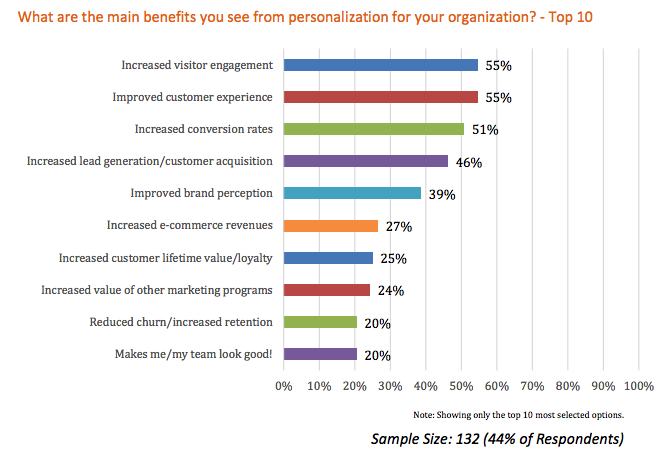
Who benefits from the relationship?
Marketing AI is a win-win for you and your audience. It provides consumers with a personalized and seamless experience, which makes them happy. And when they feel that way, they’re likely to make purchases and commitments to brands. Hence, why you – and your company’s bottom line – benefit from the AI-powered experience as well.
Should you feel threatened by the bots?
While AI continues to enhance marketing strategies, the technology can’t entirely replace your human touch yet.
However, content marketers should be prepared to adapt to AI-powered strategies. The technology alters how marketing channels work and automates tasks that would usually be high on your to-do list. Considering AI can generate insightful reports, make predictions and highlight consumer behaviors at a much faster rate than you can, it makes sense to hand the reins over.
From there, you can use the AI-generated insights to guide more successful marketing strategies and content creation. Plus, you can do so more quickly and confidently, considering the bots can take the tedium out of data collection and analysis.
The key takeaway: A different set of marketing skills may shine going forward, but you should work with AI rather than against it. It’s your tool, not your competitor!
Looking ahead
AI and marketing plan to be pretty hot and steamy for a while, continuing to work together for many years to come. As long as you’re prepared, this future doesn’t have to be scary.

While it’s on the books, we’re still far from AI taking over content creation entirely. However, the bots should continue to lead customer interactions and data insights.
AI-powered examples
Get the intelligence going with these brilliant examples of AI-powered marketing efforts:
Taco Bell
These talking tacos bring new flavor to ordering lunch. Taco Bell introduced Tacobot as the first brand to let consumers order food through Slack.
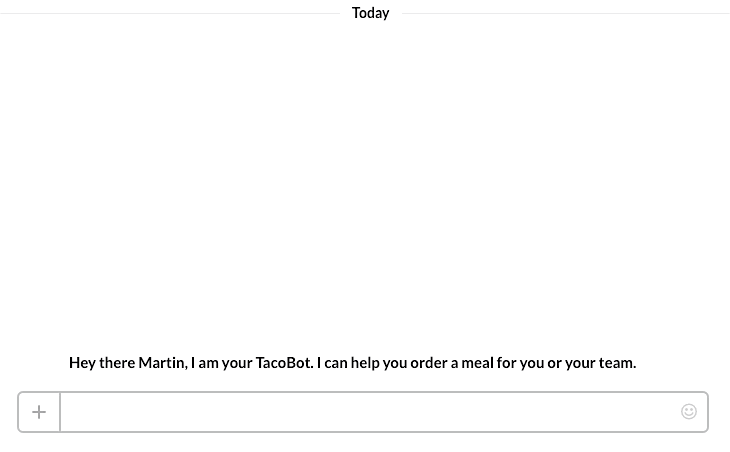
The fast-food chain used this AI-powered messaging tool to connect with consumers in a human-like way, 24 hours a day. Plus, Taco Bell leveraged a platform that many of their customers already use for both personal and professional purposes.
It makes ordering food a seamless experience for Taco Bell consumers – a perfect example of that win-win relationship powered by AI.
Sephora
This theme park for all things beauty relies on consumers trying products to convert them to buyers. But how can they do that virtually? With the help of our lovely friend, AI, of course.
With the Sephora Virtual Artist, users can engage in a 3-D live experience on the brand’s app. They simply upload a selfie, then the app uses image recognition technology to read facial features and gauge skin tones. From there, augmented reality comes in to play by “applying” different products and makeup looks to the selfie.
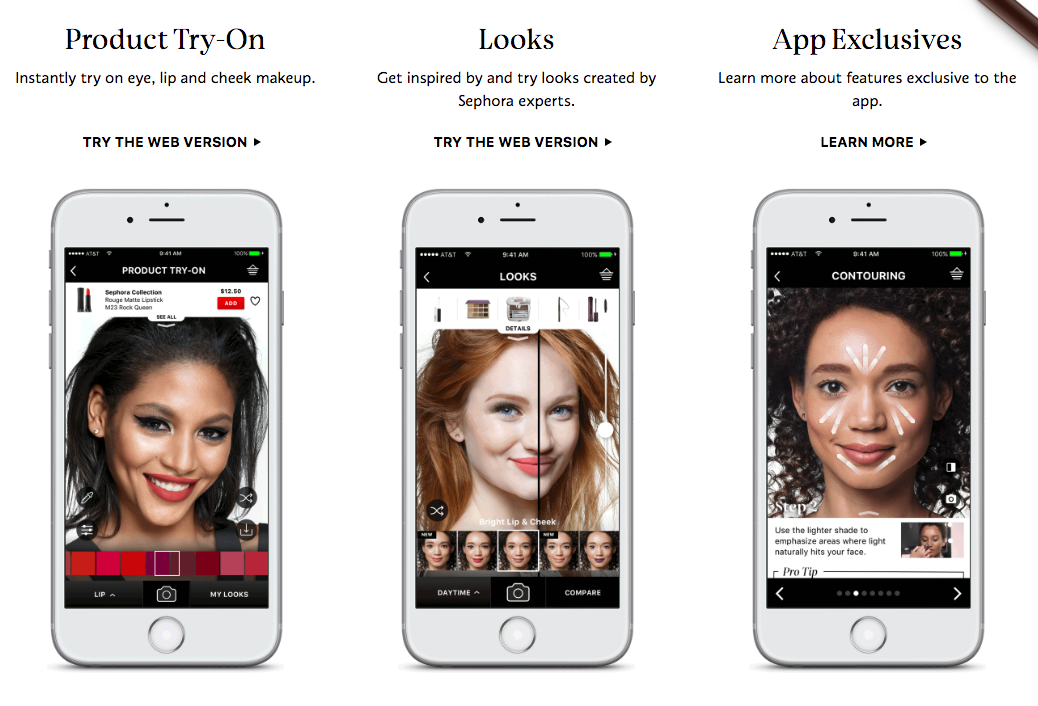
If users like what they see, they can tap for more information and purchase products straight through the app.
Sephora even launched a web version. That way, users can try out the technology without needing to download the app. This ups the convenience factor for those who don’t own a smartphone, or for consumers who come across the Virtual Artist when exploring Sephora’s website on their computer rather than phone.
Boarding the AI train
Keep these tips in mind when you’re ready to get involved with AI:
- Don’t forget that your existing marketing technology and software may be integrating AI capabilities – this makes life easier for you!
- Make sure you have enough data for the algorithms to use – that’s how they learn!
- Don’t go overboard – think about which solutions can result in the highest ROI.
- Act natural – too much personalization may feel forced to consumers.
- Start small with chatbots or voice recognition – then explore emerging AI software.
- Start testing AI-powered strategies now – if you wait too long, you risk falling below your competitors.
What’s shiny, bright and jaw-dropping now will only become commonplace as AI continues to work its way into the content marketing world. Get on board now before the train leaves you behind!





